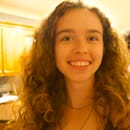I keep meeting people in college who don’t believe in reading.
More specifically, they don’t believe in reading fiction. I’ve heard the argument rehashed again and again, over late night burgers at Jo’s, on a brisk walk across campus, or with a study group in a dorm lounge: reading fictional stories is a waste of time. I usually hear it from STEM or economics concentrators, so I have to wonder if their conviction goes further than that. Do they think all of the humanities are a waste? They try to convince me that fiction is pointless, often by explaining that I should be maximizing every free second of my time. So if I’m reading, I should also be learning something new—and not because I’m curious about the world, but because the knowledge will be to my benefit. It will bolster my resume, ease my career path. Instead of fiction, they point to books that can tell me how to best spend my time, books about how to become wealthy, books about being a more efficient, more regimented person.
I nod and smile. I’m undercover; they don’t know I’m an aspiring literary arts major, meaning I think it’s worth it to invest four years of life studying the process and history of writing. They don’t know that for me, fiction is worth it. In fact, I think fiction is worth it for everyone.
Right now, I’m in an international affairs course that investigates global industrial competition, and we have discussed the idea that national investment in STEM education is the single most important factor to stimulate innovation and growth. And while technology and the sciences are crucial—when I’m not writing, you can find me in an applied math class—, this attitude forgets the tempering force of humanities and the creative arts. Hard science can teach us how to build a product; social science can tell us how to distribute it equitably. Programming can create a code; anthropologists can tell us how that code shaped the course of human development. Engineers can design buildings, and experts on urban life can make sure they will improve civil welfare. As for the writers? I believe writers, especially those who write fiction, can capture the spirit of the human experience. They inscribe the beauty, the terror, the uncertainty, and the mundanity of life—all of the intangibles that can’t be written into a piece of code—into their works.
But books are more than just records of human lives; they are also vessels of language. As a child, reading a new book from the library every few days did wonders for my vocabulary. With every book checked out, I was learning new words without realizing. And fiction stores more than just a treasure trove of words. The entire evolution of language, which is the key to all of modern human development, communication, and progress, is held inside of literature. Reading Old or Middle English from centuries ago can feel tedious, but I see it as a fascinating study of how a language can change. Literature also documents the distinction between the spoken vernacular and written formality, as well as region-specific themes and turn-of-phrase. A story that is saved can give us a window on a culture that is almost lost.
That childhood reading habit immersed me in fairytales, but it also became my teacher. It’s clear to me that reading taught me to write. Even today, after spending weeks in a particular author or character’s story, I sometimes find myself thinking in that character’s voice, or spinning phrases in the style of the writer. Years of reading accumulates into a mental vault of sentence structures, metaphors, word flows, and pairings and patterns. Reading builds writers, and the more one reads, the more styles and choices she is exposed to, so the wider her scope of creativity grows. She experiments, writing stories on notebook paper scraps or imagining movie plots. Or maybe she uses her backlog of word knowledge to write a scientific paper, or a philosophical argument. Whatever her passion, she has the words to express it, whether spoken or in writing. Fiction is quietly powerful. Because it doesn’t present new knowledge explicitly, it can be mistaken for mindless entertainment. But the pages of a novel are an education, just a more subtle one.
And that’s just the language—what about the content and themes, the moral dilemmas raised and the questions asked about society? Literature loves to ask questions and ponder solutions, but it also loves to leave you hanging. We’ve all groaned at a sharp cliffhanger or an ambiguous final note. Those endings are often an invitation to keep thinking after the chapter ends, after the final page. They are written for a society that exercises critical thinking and imagination and empathy. Books encapsulate human shortcomings and human triumphs, human mistakes and human recovery. They resonate, even if the characters exist in countries or circumstances bounds apart from our own.
Works of fiction are time capsules of humanity, and they are pieces to the engine that propels us forward. They ponder, inspire, and record. They are essential. And guess what, they’re also fun! A romp across galaxies, a decades-long romance, a small-town murder mystery, a sorceress cursed to guard a mystical tower—and those are just the cliches. Any conceivable limits of fiction have been blown away, especially in the past few decades. The world of literature today is becoming rapidly more diverse, more experimental, more saturated with every creative exploration the human brain could generate, but there’s always more to add. With so much available, of course readers don’t love every book they read. But they do learn from each one, even if they’re not trying to.
So this spring break, which hopefully offers at least a little rest from the endless stream of schoolwork and to-do lists, I ask just one thing: read a book. It doesn’t even have to be fiction. But read something, not because it’s needed for a class discussion, or will help you maximize your time, or because endless scrolling on social media eventually adds up to a substantial word-count. Read because you want to. Read because fiction is worth it, because every word you read is part of the human story, and so are you. Read a book. Then, I think, you’ll start to believe.


